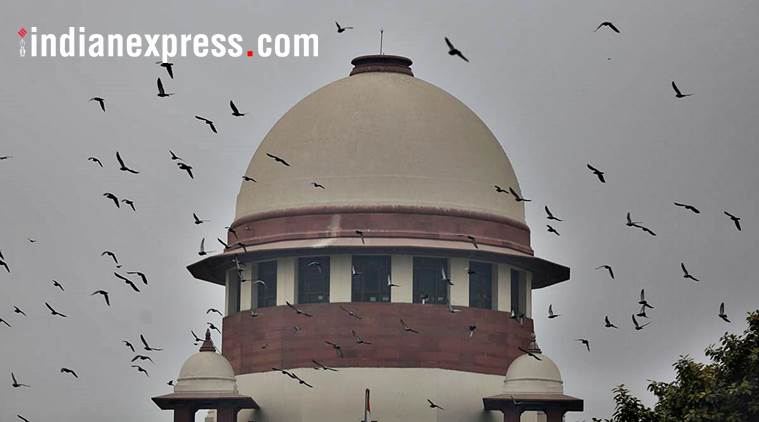 The Supreme Court had last month reserved its order on a batch of petitions which sought disqualification of chargesheeted legislators even before their conviction in criminal cases. (Express Photo by Tashi Tobgyal)
The Supreme Court had last month reserved its order on a batch of petitions which sought disqualification of chargesheeted legislators even before their conviction in criminal cases. (Express Photo by Tashi Tobgyal)
The Supreme Court will on Tuesday pronounce its verdict on whether chargesheeted lawmakers should be disqualified from contesting elections and whether an MP or MLA who is also a lawyer can be allowed to perform the dual role.
A five-judge Constitution Bench, comprising Chief Justice of India Dipak Misra and Justices R F Nariman, A M Khanwilkar, D Y Chandrachud and Indu Malhotra, had last month reserved its order on a batch of petitions which sought disqualification of chargesheeted legislators even before their conviction in criminal cases.
The court was hearing petitions filed by NGO Public Interest Foundation and Delhi BJP leader and lawyer Ashwini Kumar Upadhyay among others.
Appearing for the Centre, Attorney General K K Venugopal told the court during the hearing that the judiciary cannot get into law-making, which is reserved for the legislature. He also opposed suggestions that a person who is chargesheeted could be barred from contesting polls as, under the Indian law, there is presumption of innocence unless proven guilty.
The court had then wondered if it could direct the Election Commission to ask every member of a political party to declare if they have any case against them. “That will not disqualify them from being a member of the party but will help people know how many members of the party have criminal cases against them. When these people want to contest, they will not get symbols,” the court had said.
A three-judge bench of the court, comprising the CJI and Justices A M Khanwilkar and D Y Chandrachud, had, on July 9, reserved its judgment on a petition which said lawmakers who are lawyers should not be allowed to continue their practice during their tenure as MPs or MLAs.
Upadhyay had earlier taken up the matter with the Bar Council of India, which set up a sub-committee to look into it. The sub-committee, however, said lawmakers could continue their legal practice.
The Supreme Court is also expected to deliver in the next six days its judgments on a slew of other important matters, including the constitutional validity of Aadhaar; whether the findings in the M Ismail Faruqui case — that a mosque is not an “essential part of the practice of the religion of Islam” and hence “its acquisition (by the state) is not prohibited by the provisions in the Constitution of India” — should be referred to a larger bench; and on a petition challenging age restrictions on entry of women to the Sabarimala temple. The Ismail Faruqui case is an offshoot of the Ayodhya title dispute case.
The hearings in these matters were completed by benches headed by CJI Misra, who is set to retire on October 2.